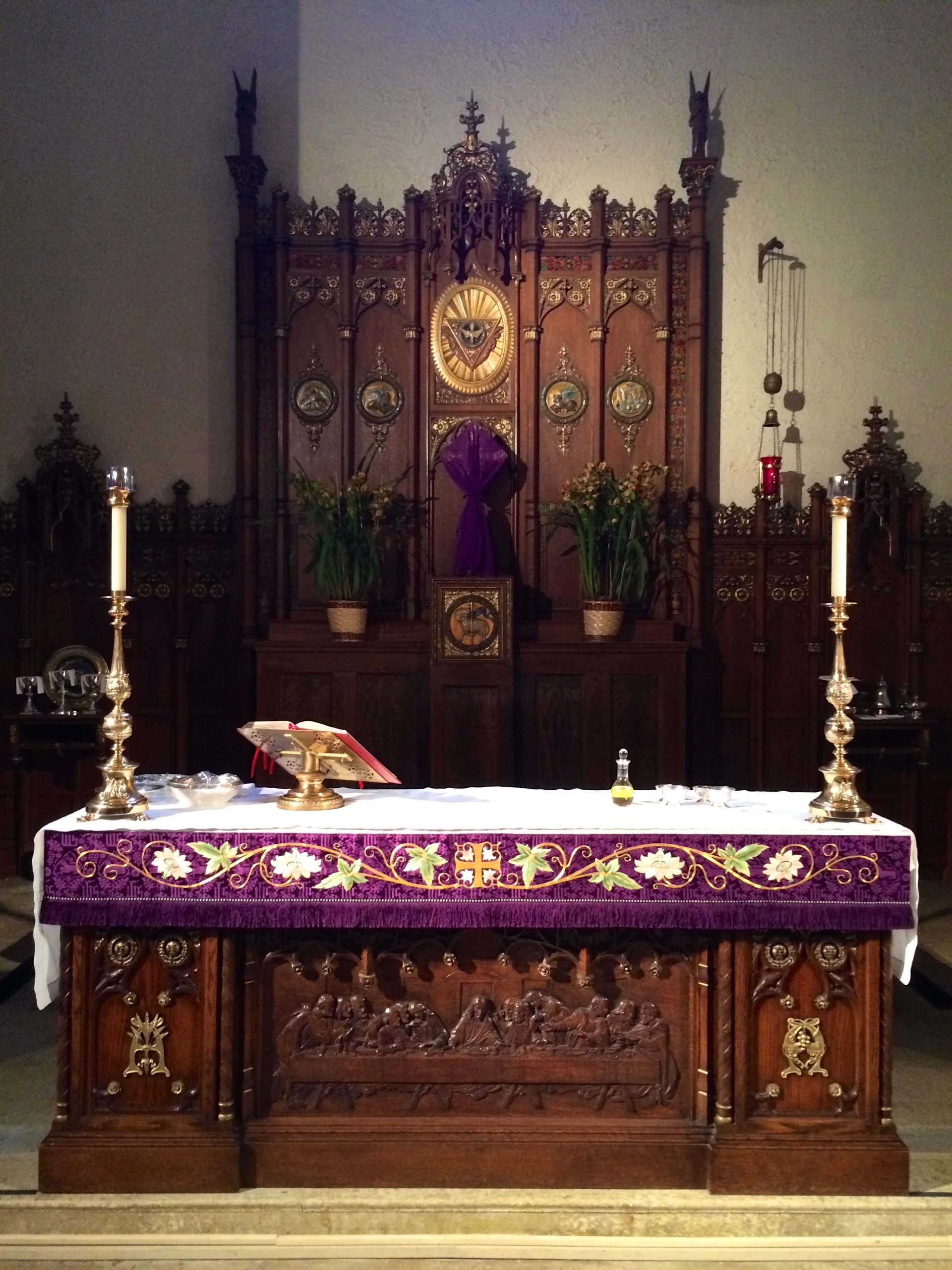Published
3 years agoon

Today 2nd of March is 2022 Ash Wednesday, the beginning of a 40-day period of praying, fasting, arms-giving and self-denial that ends on Good Friday.
Lent is a season in the Christian Calendar when the faithful focus on simple living, prayer, and fasting in order to grow closer to God, purify themselves in readiness for the Passion Week that peaks with two important events – the crucifixion on Mount Calvary, and death of our Lord Jesus Christ on Good Friday as well as his Resurrection on Easter Sunday.
On this Holy Day, Christians are admonished to always remember their mortality, repent of their sins, and return to God in penitence. It is a period that the faithful inexorably submit to the truism that life is a precious gift from God, and make conscious effort to direct their lives towards Jesus Christ.
It is a period that Christians make resolutions and commit to change their lives over the next 40 days so as to be more Christ-like. Christians, especially Catholics, during Ash Wednesday Mass, the officiating priest marks the sign of the cross on the forehead of the faithful with ashes mixed with holy oil or water as a reminder that “dust we are, to dust we shall return”.
The use of ash pre-dates Christianity and goes back to the Jewish era. In both Jewish and Christian traditions, ash is a sign of mortality and repentance.
Mortality, because when we die, our bodies eventually decompose and we become dust/dirt/ash/whatever. ‘Dust thou art, to dust thou returneth.’ Repentance, because long ago, when people are remorseful about something they did, they would put ashes on their head and wear “sackcloth” to remind themselves that sin is uncomfortable and leads to death of the spirit. This was their way of confessing their sins and making atonement for them.
In this religious event, the ash, too, is special in the sense that it is not from just any palm frond. It is specifically from the palm frond used during the previous year’s Palm Sunday or Jesus’ triumphant entrance into Jerusalem that actually marks the beginning of the Passion Week that leads to His crucifixion on Good Friday and culminates to his Resurrection on Easter Sunday.
Jesus rode a donkey into Jerusalem while people waved palms and cheered him on. Those palms are prayed over and sprinkled with Holy Water making them something of a sacramental. In the Catholic Church, a sacramental is an object, act, or ritual used to show religious devotion.
That palm frond is treated like one and is preserved till the next Lenten season. Those palm fronds that were waved in joy for Jesus become ashes of sorrow during Lent when they are burnt and blessed on Ash Wednesday. Saving the palms from Palm Sunday, burning them, and mixing them with a little oil or water after prayers by the officiating priest makes it symbolic.
On Ash Wednesday Mass, the faithful are expected, mandatorily, to come forward to receive the ashes. The priest will make a small cross on their foreheads by smudging the ashes- an outward sign of inward grace. While the ashes remind us of our mortality and sin, the cross reminds us of Jesus’ resurrection (life after death) and forgiveness.
It’s a powerful, non-verbal way that we can experience God’s forgiveness and renewal as we return to Jesus.
The 40-day period of Lent takes Christians back to the baptism of Jesus when the sky opened, the Spirit of God, which looked like a dove, descended on Jesus, and a voice from heaven said, “This is my Son, My Beloved, with whom I am pleased.” Afterward, as told in Matthew 4:1-11, Jesus was sent into the wilderness by the Holy Spirit where he fasted and prayed for 40 days. During his time there, he was tempted by Satan and found clarity and strength to resist temptation. Afterwards, he was ready to begin his ministry.
Lent is a great time to “repent”- to return to God and re-focus one’s life to be more in line with Jesus. It’s a 40-day trial run in changing one’s lifestyle and letting God change one’s heart. It involves fasting, going without food for days or at least skipping some meals and abstinence. It also involves cutting out some of the things in one’s life that distract one from God. It involves service and arms giving. Serving others is one way we serve God. Learn how giving of oneself in prayer is. It is, indeed, a time of intensive prayer, a way of becoming more in tune with God.


Super Eagles beats Jamaica to Win Unity Cup


Lagos Mental Institute Nears Completion, Set to Become Largest in Sub-Saharan Africa


UK Opens Africa’s Largest Visa Application Centre In Lagos, As Nigeria Generates The Highest Revenue


Replace VP’s Aircraft to Avert Tragedy, Borno Speaker Tells FG


DAVIDO STRUTS HIS STUFF AT LAGOS FASHION WEEK FOR UGO MONYE


























